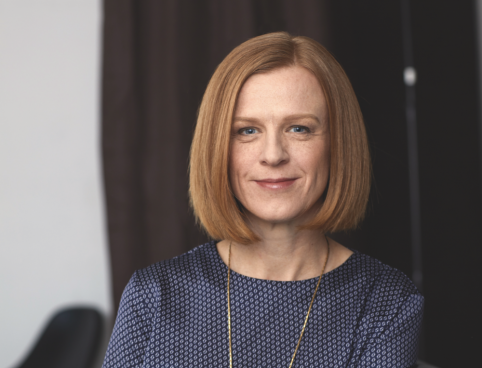Nearly five months have passed since George Floyd’s death at the hands of Minneapolis police was caught on video. Like you, the staff at Broadview experienced intense emotions amid the outrage that followed.
As journalists, we had to push through the pain because we also had a job to do. We scrapped our editorial plans and hustled together columns and blogs exploring issues of race, published last month’s feature package about systemic racism in Canadian policing, and landed this month’s cover interview with TSN’s Kayla Grey, the first Black female sports anchor in Canada. I’m proud of this work. But I also caught myself veering toward smug satisfaction for having done “our part.” Thankfully, another thought swiftly followed: “You merely did your job. Dig deeper.”
Digging deeper has led me to investigate the systemic racism within our own organization. According to 2016 Statistics Canada figures, 22 percent of Canadians are visible minorities, and five percent are Indigenous. Taking the total — 27 percent — as a benchmark for racial diversity, Broadview has some work to do.
Of our 16 staff and 11 board members, only 15 percent are racialized. Among the freelance writers for three sections of our print magazine from January to November 2020, about 23 percent are BIPOC (Black, Indigenous or people of colour). Online, our numbers are closer to 10 percent.
As a white person, I have all kinds of knee-jerk excuses for these numbers. The United Church of Canada, the faith tradition in which Broadview is rooted, is predominantly white, so naturally our board is, too. Experienced journalists, those “of a certain age,” tend also to be white, so many of our writers are, too. But these excuses are lazy and perpetuate systemic racism. At Broadview, we’re no longer content to reflect the church or industry status quo; we aspire to represent the makeup of Canadian society.
In discussions about racism, our editorial team has also touched on our commitment to engage with others who are often marginalized: people with disabilities, members of the LGBTQ2 community and those like Roksana Hajrizi, a stateless Roma woman living in Canada.
While the statistics help us monitor our progress, it’s diversity’s own benefits that will keep us on track. A greater variety of perspectives leads to more informed decisions, access to better stories and ideas, and a smarter publication for our readers.
So we’re setting a goal at Broadview: one-third BIPOC staff and freelancers by 2025, and an annual check-in on our progress. The leaders of Broadview’s board are already working toward a similar target. Raising the bar on diversity is exciting, but I’m nervous, too — that the well-worn paths to finding contributors will be bumpier to start, or that we’ll fall short of our own aims. But our intentions are set, and we’re ready to dig deeper. I encourage you to do the same. Our workplaces, newsrooms, organizations and churches will be stronger for it.
This editorial first appeared in Broadview’s November 2020 issue with the title “Be the change.”
We hope you found this Broadview article engaging.
Our team is working hard to bring you more independent, award-winning journalism. But Broadview is a nonprofit and these are tough times for magazines. Please consider supporting our work. There are a number of ways to do so:
- Subscribe to our magazine and you’ll receive intelligent, timely stories and perspectives delivered to your home 10 times a year.
- Donate to our Friends Fund.
- Give the gift of Broadview to someone special in your life and make a difference!
Thank you for being such wonderful readers.
Jocelyn Bell
Editor/Publisher
















This will enrich us all. Thank you